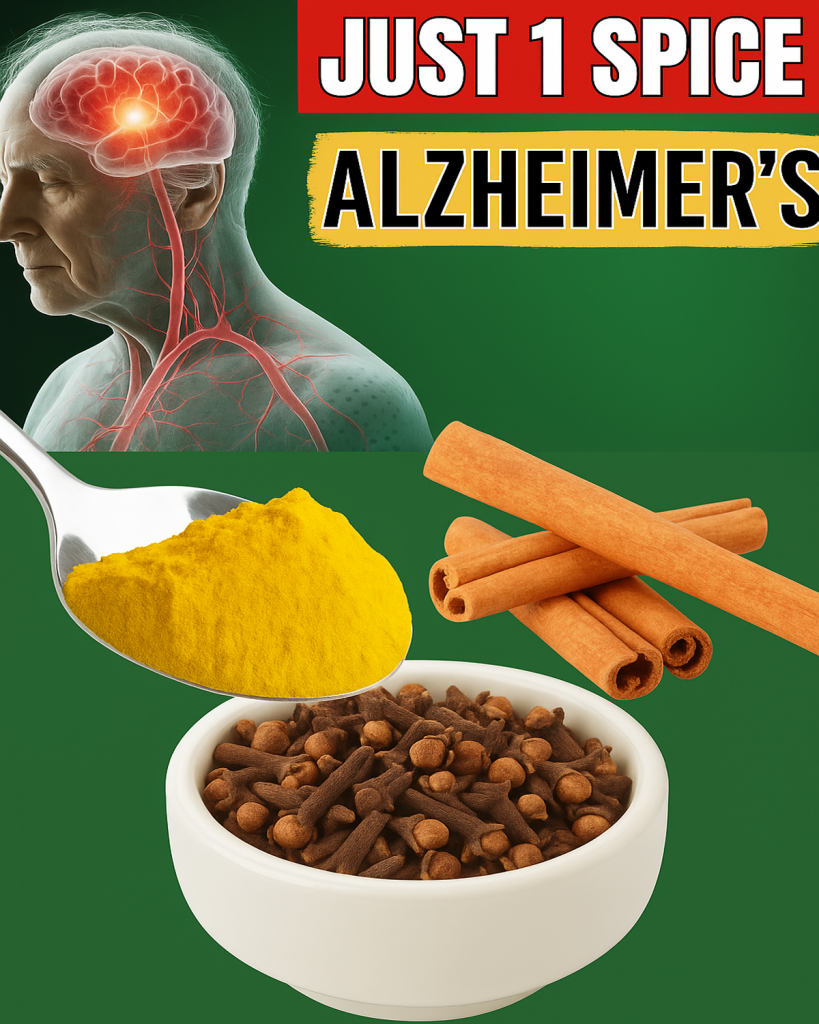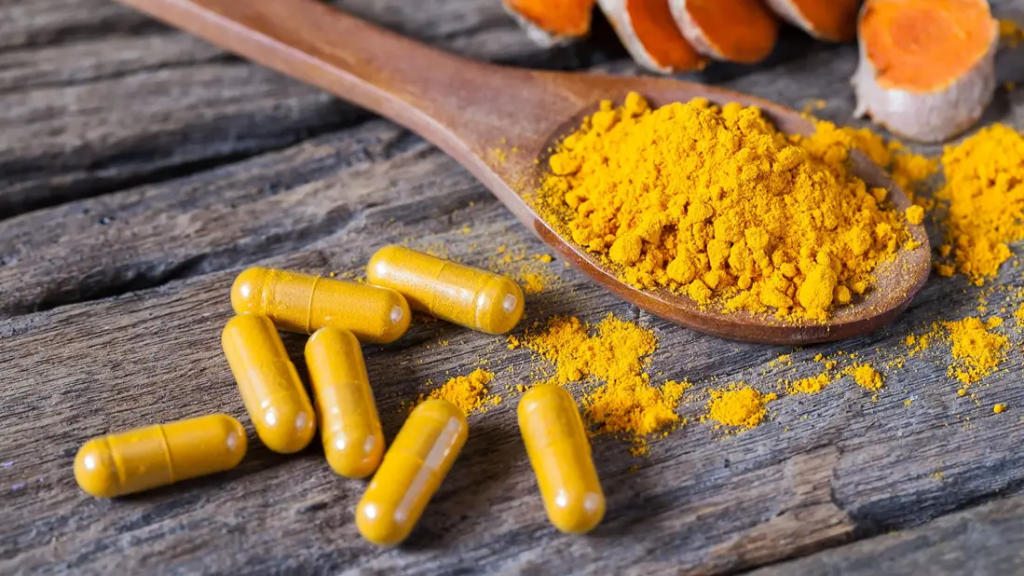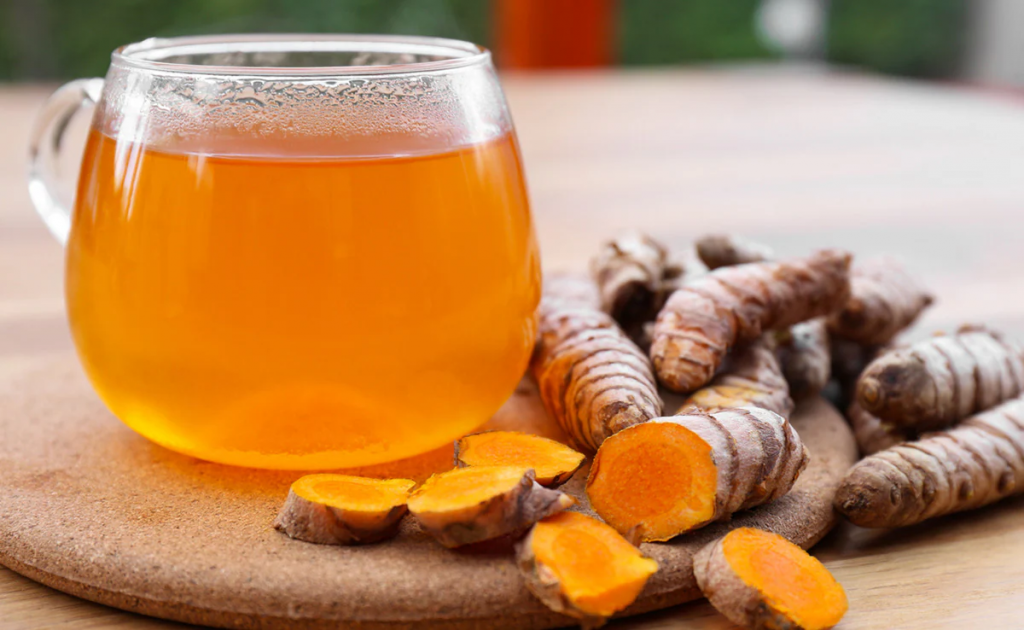By the time most of us reach 50, the thought of memory loss becomes more real. Did you know that more than 6 million Americans are currently living with Alzheimer’s disease, and worldwide, the number is expected to reach over 130 million by 2050? Dementia and Alzheimer’s not only affect memory but also independence, family relationships, and overall quality of life. While scientists continue to search for cures, nutrition and lifestyle changes are gaining attention as powerful tools to support brain health.
Here’s the surprising part: a single everyday spice could play a role in protecting your brain against memory decline. It’s not the one you immediately think of, but it has been studied for its antioxidant and anti-inflammatory compounds, which researchers believe may help slow down the processes that contribute to Alzheimer’s and dementia. In this article, we’ll dive deep into what this spice is, how it works, and how you can use it in your daily life.

Why Alzheimer’s and Dementia Are on the Rise
Alzheimer’s disease is the most common form of dementia, accounting for about 60–70% of cases. It occurs when abnormal protein deposits (amyloid plaques and tau tangles) disrupt communication between brain cells, eventually causing cell death.
Key risk factors include:
- Age (most common after 65)
- Family history and genetics
- Chronic inflammation
- Oxidative stress (damage caused by free radicals)
- Poor diet, lack of exercise, and sedentary lifestyle
What’s striking is that while we can’t control aging or genetics, lifestyle and diet choices may reduce up to 40% of dementia risk, according to some studies.

The Secret Spice for Brain Protection
The spice that has drawn global attention in brain research is turmeric, specifically its active compound curcumin. While turmeric is widely known for adding flavor and color to curries, its real power lies in its medicinal properties.
How Turmeric Supports Brain Health
- Anti-inflammatory effects: Curcumin reduces inflammation in the brain, which is strongly linked to Alzheimer’s progression.
- Antioxidant activity: It neutralizes free radicals that damage brain cells.
- Boosts brain-derived neurotrophic factor (BDNF): BDNF supports the growth of new neurons and strengthens connections, essential for memory and learning.
- Lowers amyloid buildup: Preliminary studies suggest curcumin may help prevent the formation of plaques associated with Alzheimer’s.
Interestingly, Alzheimer’s rates are significantly lower in India, where turmeric is a staple in daily cooking. Researchers believe this may not be a coincidence.

How to Use Turmeric Daily
Turmeric is easy to incorporate into your diet, but consistency is key. Here are effective ways:
1. Golden Milk
A soothing evening drink made with turmeric, milk (or plant-based milk), black pepper, and a touch of honey. Black pepper increases curcumin absorption by up to 2000%.
2. Cooking with Turmeric
Add turmeric powder to soups, stews, scrambled eggs, rice dishes, or roasted vegetables for a brain-boosting kick.
3. Turmeric Tea
Simmer turmeric slices or powder with ginger and lemon for an anti-inflammatory tea.

4. Supplements
Curcumin capsules are available, but consult a healthcare provider before starting, especially if you take medications for blood thinning or diabetes.
Other Brain-Healthy Spices to Combine with Turmeric
While turmeric is powerful on its own, combining it with other spices may enhance its effects:
- Cinnamon: Improves insulin sensitivity, which benefits brain function.
- Cloves: Rich in antioxidants that protect neurons.
- Saffron: Shown in some studies to improve mood and memory in mild Alzheimer’s.

Real-Life Examples
Case 1: A 60-year-old teacher struggling with forgetfulness started drinking golden milk every night. Within six months, she reported sharper focus and fewer “senior moments.”
Case 2: A retired engineer with a family history of dementia incorporated turmeric tea and daily walking into his lifestyle. His memory test scores stabilized over two years, surprising his doctors.
These stories show how consistent habits, combined with natural remedies, may help preserve brain function.
Quick Reference Table
| Spice | Key Compound | Brain Benefit | Best Way to Use |
|---|---|---|---|
| Turmeric | Curcumin | Anti-inflammatory, antioxidant, BDNF | Golden milk, tea, cooking |
| Cinnamon | Cinnamaldehyde | Supports insulin and brain energy use | Tea, oatmeal, smoothies |
| Cloves | Eugenol | Protects neurons from oxidative stress | Spice blends, teas |
| Saffron | Crocin | Improves mood and memory | Supplements, cooking |
Lifestyle Tips to Complement the Spice
- Stay active: Regular walking or aerobic exercise increases blood flow to the brain.
- Eat whole foods: Focus on vegetables, fish, nuts, and whole grains.
- Keep learning: Brain games, reading, or learning a new skill keep neurons firing.
- Sleep well: Deep sleep is crucial for clearing toxic waste from the brain.
Conclusion: FAQs on Alzheimer’s and Natural Prevention
Can turmeric cure Alzheimer’s?
No. There is currently no cure for Alzheimer’s. Turmeric may support brain health and help reduce risk factors, but it does not reverse the disease.
How much turmeric should I take daily?
For cooking, 1–2 teaspoons of turmeric powder is safe for most people. Supplements should be taken only under medical supervision.
When should I start?
The earlier, the better. Building brain-protective habits after 50 can help delay or reduce the risk of memory-related diseases.
*Disclaimer: This article is for educational purposes only. It does not replace medical advice, diagnosis, or treatment. Always consult with a healthcare professional before making changes to your diet or starting new supplements.




